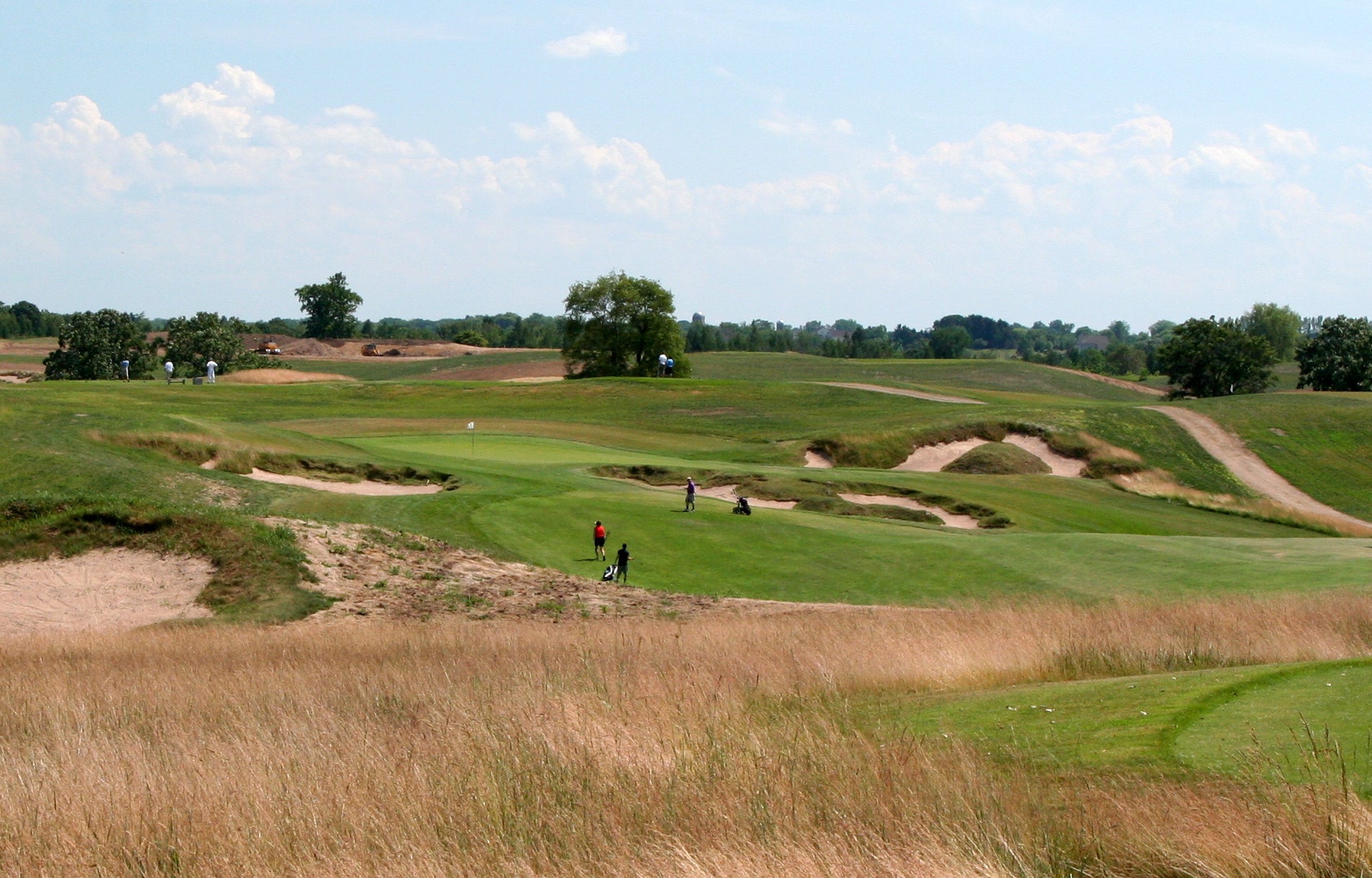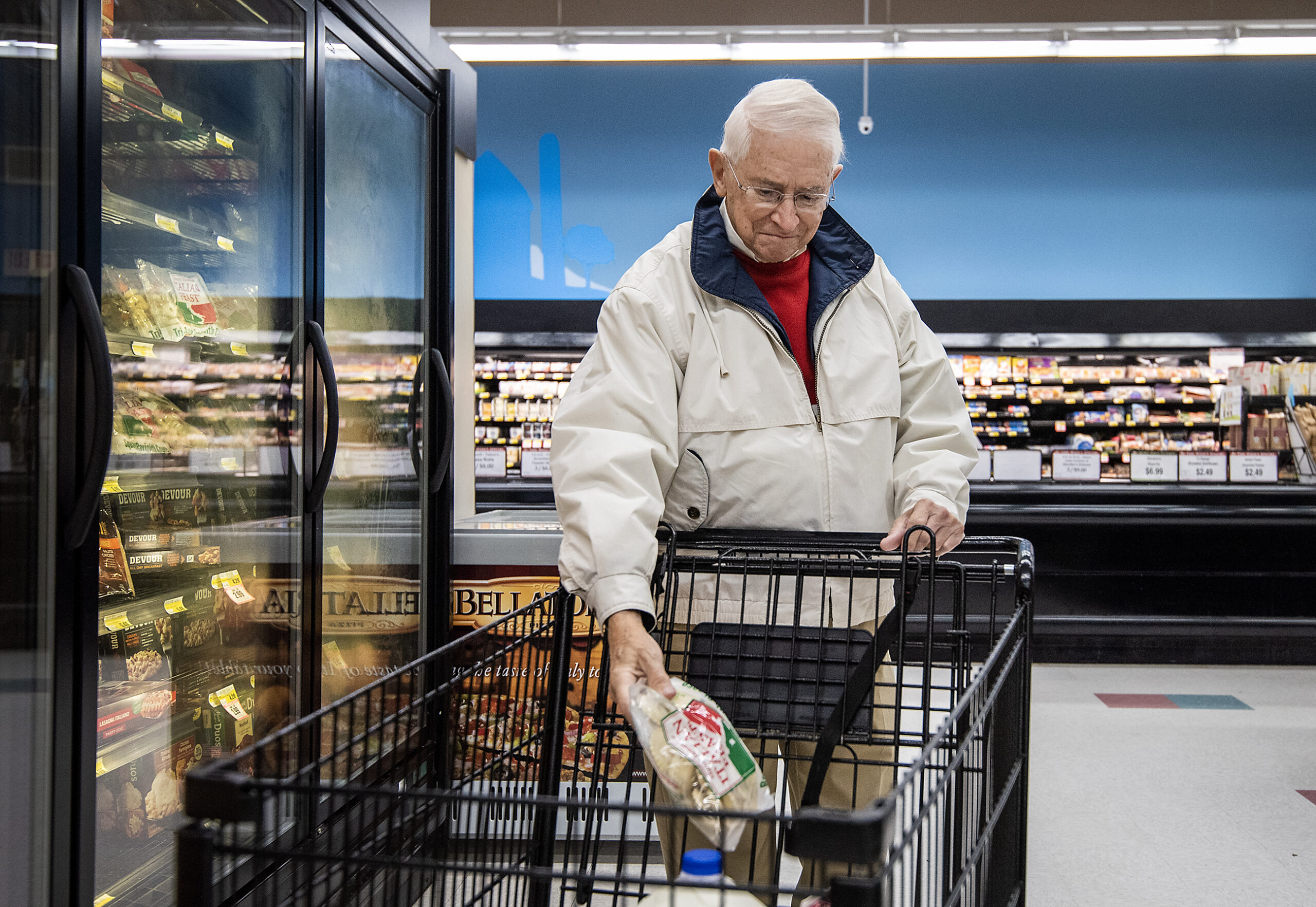Foxconn plans to open an innovation hub in downtown Eau Claire. We take a look at the company’s intentions for the facility and reaction from local and state leaders. Then, between Wisconsin golf courses like Sand Valley, Erin Hills and Whistling Straits, the state has a growing number of elite courses for players. We talk to an expert about the golf scene in the state. We also discuss the culture of soap operas in America.
Featured in this Show
-
Foxconn Announces It's Coming To Eau Claire
Foxconn is expanding its operations to western Wisconsin. We get the details on the company’s innovation hub it plans to open in downtown Eau Claire.
-
Is Wisconsin The Golf Capital Of The United States?
The new Sand Valley golf course near Wisconsin Rapids has gotten rave reviews and is already becoming a tourist destination, joining a handful of other prestigious courses in the state. We talk with a golf writer about where Wisconsin stacks up with other golf meccas in the country. We also look at whether the golf industry is inviting for those of us without the budget for the state’s top-ranked courses.
-
Soap Operas’ Influence On American Culture
Soap operas were first radio entertainment, and became part of television from its early days. The daytime dramas have shaped American culture for decades, and have a lot of influence on how stories are told for audiences today.
-
Soap Operas Longstanding Influence On American Culture
Soap operas have been part of American culture for decades. While their star may have dwindled over time, their dramatic flair for telling stories has been a source of inspiration for some of today’s most popular television shows, according to a media expert.
Soap operas were in their prime from the 1960s through the 1980s, said Elana Levine, director of graduate studies in journalism, advertising and media studies at the University of Wisconsin-Milwaukee.
“But then, as was true of most of broadcast network television, the ratings start to go down a bit,” she said. “Advertisers were less willing to spend as much money to advertise their programs and the audience started to fall away.”
There’s no single source for their decline, she said, a host of factors played a role, like the rise in cable and the internet.
“It’s a kind of explosion of viewing options that people have had that have taken them away from that kind of daily habit,” Levine said.
By the later 2000s, broadcast networks realized they weren’t making a profit from soap operas anymore, and the number of soap operas on air has dropped to just four, she said.
The daily viewing habit was a trademark of soap operas, Levine said. It allowed viewers to get totally immersed in the characters’ lives and want to come back for more. And it’s a trick the popular shows of today have picked up on.
Shows like “Dallas” – which was rebooted in 2012 – and “Dynasty” mastered the continued storyline in the 1980s and set the stage for today, she said. Shows like “Game of Thrones” and “Breaking Bad” have carried that tradition on.
“We’re definitely in an era of really deep investment in these continuing narratives, which differ from daytime soaps in many ways, but also are borrowing from a fundamental storytelling form that the soaps are really the ones that invented,” Levine said.
Soap operas can be traced back to broadcast radio in the early 1930s, when they aired for 15 minutes every day.
“They were sponsored by soap advertisers — laundry soap, dish soap that sort of thing — who were trying to reach housewives and advertise their products to them,” she said. “So that’s partly how they got their name and how the genre got established.”
But their move into television was not easy, Levine said.
“It was a very difficult sell,” she said. “Most of the sponsor companies, like Procter & Gamble, that owned these shows and that were paying for them to appear on radio were really reluctant … They thought that women were not going to stop their housework and stare at the screen.”
Irna Phillips, a creator of radio soap operas, decided to fund an experimental episode on television to prove soap operas could work on television as well. It worked.
“Soap operas are one of a really interesting genre of American broadcasting because women have always been so prominent in their creation,” Levine said.
However, that prominence also attached negative stereotypes to the genre.
“Unfortunately, you know, we live in a culture, especially historically, where things that women were invested in and cared about were often denigrated and seen as kind of less than things that were more respected and respectable,” she said.
Despite those negative stereotypes, soap operas have managed to hold on and affect many viewers lives, Levine said.
“I mean probably the deepest, most heartfelt connections that you hear when people talk about their memories of you know consuming media are these stories from soap operas … it was really powerful to see a character that you knew their family, you knew so much about what had happened to them and seeing them go through difficult times or die or things like that,” she said.
Episode Credits
- Judith Siers-Poisson Host
- Rob Ferrett Host
- Dean Knetter Host
- Bill Martens Producer
- Dean Knetter Producer
- Judith Siers-Poisson Producer
- Rich Kremer Guest
- Gary D'Amato Guest
- Elana Levine Guest
Wisconsin Public Radio, © Copyright 2025, Board of Regents of the University of Wisconsin System and Wisconsin Educational Communications Board.

